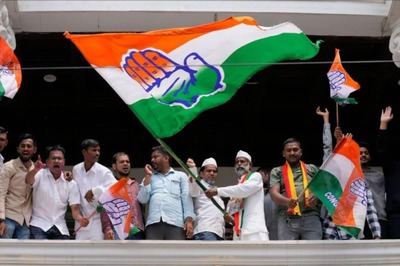
views
The England and Wales Cricket Board (ECB) will bar transgender women from the top two tiers of women’s cricket in England as well as the women’s Hundred under its new transgender participation policy.
Last year, the International Cricket Council (ICC) approved new gender eligibility regulations whereby any male or female participant who has been through any form of male puberty will not be allowed participate in the international women’s game.
The ECB’s previous policy stated that a transgender woman could compete in female-only competition if they had written clearance from the cricket board.
“The ECB has decided that from 2025 it will adopt the same approach as the ICC for women’s professional domestic cricket,” the ECB said in a statement.
“This provides consistency, given that a primary purpose of the top end of the domestic structure is to produce international players.
“The detailed policy will now be developed over the coming months, in consultation with stakeholders, and is due to be formally in place in time for the 2025 domestic season. It will apply to Tiers 1 and 2 of the new women’s domestic structure from 2025, as well as The Hundred Women’s competition.”
In March, the United Kingdom’s then sports minister Lucy Frazer called on sporting bodies in the country to reassess their rules on transgender athletes competing in women’s sports to ensure fairness.
“The ECB recognises that transgender participation is a complex area, with many strongly held views, and it is impossible to balance all the considerations,” the governing body added.
The ECB’s rules do not apply to grass-roots cricket.
Following the announcement of the ICC’s new regulations last year, Canadian transgender cricketer Danielle McGahey, who played six Twenty20 Internationals, retired from international cricket.
The ICC’s decision followed similar rulings in recent years by the global chiefs of swimming, rugby union, cycling and athletics.
Transgender advocacy groups say excluding trans athletes amounts to discrimination. Critics of transgender inclusion in women’s sport say going through male puberty imbues athletes with a huge musculo-skeletal advantage that transition does not mitigate.
Cricket Australia still allows transgender players to compete in the elite domestic women’s game, if they have maintained testosterone levels of less than 10 nanograms per deciliter for 12 months before nominating for a team.















Comments
0 comment